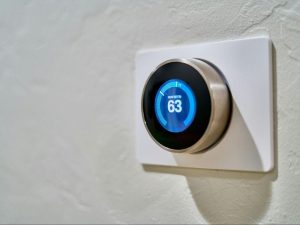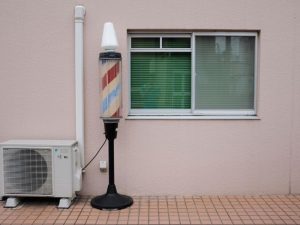Air conditioning systems play a vital role in maintaining comfortable indoor environments, especially during scorching summers. However, like any mechanical device, they are subject to wear and tear over time. As an air conditioner ages, the question of whether to repair or replace it becomes increasingly pertinent. Understanding the factors that influence this decision can help homeowners make informed choices, balancing cost considerations with comfort and efficiency requirements.
The Age Factor
One of the primary considerations when deciding whether to repair or replace an air conditioner is its age. Our friends at ECI explain how, most air conditioning units have an average lifespan of 10 to 15 years, depending on factors such as usage, maintenance, and environmental conditions. As units approach or exceed this lifespan, they are more prone to breakdowns and inefficiencies.
Repairing an older air conditioner may provide a temporary fix, but it’s important to consider the cumulative cost of repairs over time. Continuously investing in repairs for an aging unit can become financially unsustainable. Moreover, older units are often less energy-efficient compared to newer models, leading to higher utility bills.
Energy Efficiency
Energy efficiency is a significant factor to consider when deciding between repairing or replacing an air conditioner. Advancements in technology have led to the development of more energy-efficient cooling systems. Newer models often come with higher SEER (Seasonal Energy Efficiency Ratio) ratings, indicating their ability to cool a space using less energy.
If your current air conditioner has a low SEER rating or has become less efficient over time, replacing it with a newer, more energy-efficient model can lead to long-term cost savings on utility bills. While the upfront cost of a new unit may be higher, the energy savings over its lifespan can offset this initial investment.
Frequency and Cost of Repairs
Another factor to consider is the frequency and cost of repairs. If your air conditioner requires frequent repairs or if the cost of repairs is approaching or exceeding the value of the unit, it may be more practical to replace it. Continuously repairing an older unit can result in a cycle of diminishing returns, where the money spent on repairs could have been invested in a new, more reliable system.
Additionally, older air conditioners may experience difficulties sourcing replacement parts, leading to longer downtimes during repairs. This can be particularly inconvenient during peak summer months when reliable cooling is essential.
Comfort and Performance
The performance of your air conditioner directly impacts indoor comfort levels. As air conditioners age, they may struggle to maintain consistent temperatures or adequately remove humidity from the air. This can result in uneven cooling, hot spots, or excessive moisture buildup, leading to discomfort and potential health issues such as mold growth.
Replacing an outdated air conditioner with a newer model can improve indoor comfort by providing more precise temperature control and better humidity regulation. Modern systems often come with features such as variable-speed compressors, programmable thermostats, and zoning capabilities, allowing for customized cooling solutions tailored to individual preferences.
Environmental Considerations
From an environmental perspective, replacing an old, inefficient air conditioner with a newer, energy-efficient model can have significant benefits. Energy-efficient systems consume less electricity, reducing greenhouse gas emissions associated with power generation. Additionally, some newer models use alternative refrigerants with lower global warming potential, contributing to environmental sustainability.
Proper disposal of old air conditioning units is also important to minimize environmental impact. Many components of air conditioners, such as refrigerants and metals, can be harmful if not disposed of correctly. Recycling programs and responsible disposal methods ensure that old units are handled in an environmentally friendly manner.
Cost-Benefit Analysis
Ultimately, the decision to repair or replace an air conditioner requires a thorough cost-benefit analysis. While repairing may seem like a more immediate and cost-effective solution, it’s essential to consider the long-term implications. A new, energy-efficient air conditioner may entail a higher upfront cost but can lead to lower operating expenses, improved comfort, and increased reliability over its lifespan.
Factors to consider in the cost-benefit analysis include:
- Initial Cost: Compare the cost of repairing the existing unit with the cost of purchasing and installing a new one.
- Operating Costs: Estimate the energy savings of a new, energy-efficient unit compared to the ongoing operational expenses of an older, less efficient unit.
- Comfort and Performance: Consider the intangible benefits of improved comfort, reliability, and indoor air quality provided by a new air conditioner.
- Environmental Impact: Assess the environmental implications of continuing to operate an inefficient air conditioner versus upgrading to a more eco-friendly system.
Conclusion
Deciding whether to repair or replace your air conditioner requires careful consideration of various factors, including age, energy efficiency, repair costs, comfort, and environmental impact. While repairing may offer a temporary solution, replacing an outdated unit with a newer, energy-efficient model can provide long-term benefits in terms of comfort, cost savings, and environmental sustainability. By weighing these factors and conducting a thorough cost-benefit analysis, homeowners can make informed decisions that meet their cooling needs while maximizing efficiency and comfort.




